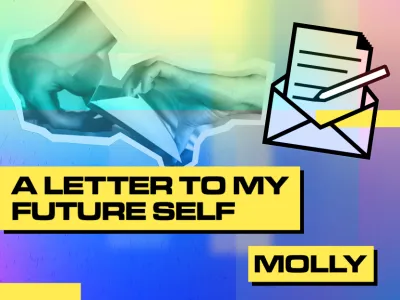
Life Lessons From The Bard
Writers’ Club member Elise shares what she’s learnt from Shakespeare and why she loves him…
Shakespeare: a name that will fill you with either radiance or dread. Known for his incredibly dense language and an archaic “methinks” or two, his poetry and plays have terrorised uncomfortable students for decades, but they’re much more relevant and useful than you’d think.

When I was younger, I sat in amazement reading the tiny, kid-friendly Shakespeare stories. I imagined that I was a mature, clever writer for being able to read something that everyone said was so confusing. What I didn’t realise is there’s quite a jump from “I’ve had enough of her for one night” to “it is the base though bitter disposition of Beatrice that puts the world into her person and so gives me out”. But that’s where the seed of my love for Shakespeare was planted. Sure, the language was completely different, but the stories were there and I thought they were brilliant.
Fast forward several years and I’m doing a critical research project on Shakespeare because I can’t seem to get enough of him. Now the question I’m asking is why do we still love his work after so many years?
Maybe it’s because he can teach us how to craft our speech effectively. Back in the Elizabethan age, young men were taught rhetoric in school – the art of persuasion and the power of argument. Shakespeare learned the rules of rhetoric and used them in his plays to structure a debate and maximise the impact of his words. One key idea he used is made up of three parts: ethos, logos and pathos. These three fancy Latin words roughly translate to “why should you listen to me?”, “why am I right?” and “why does it matter?” When you look at his eventful work with this in mind, it elevates the dialogue and gives so much clarity to what he’s written. It’s also useful in a world where we’re having difficult conversations and words can have such a big impact.
Perhaps we like Shakespeare because, in discussing the highlights and drawbacks of his work, we can have enlightening conversations. His plays are incredibly thought-provoking but they were also written four hundred years ago, so they don’t reflect 21st century views on topics such as race and gender. In fact, some are downright awful in their attitudes towards minority groups – The Merchant of Venice and The Taming of the Shrew come to mind – but they spark countless conversations about those issues that may not have begun otherwise. Strong-willed female characters like Lady Macbeth and Viola take great strides forward on the road to good female representation, but they both end up either mad or married. You can see this happening with a lot of potentially revolutionary protagonists, like Othello. He’s a Black man whose well-spoken, peaceful nature combats traditional racist stereotypes but he ends up driven to madness by the end of the play. The blurred lines and divided opinions about characters and plots create a space for debate, which leads to growth and that to me is extremely important.
The biggest question most students have when they’re presented with a page of 17th century unearthly looking prose is “what on earth does this have to do with me?” There’s a reason Hollywood makes so many modern remakes of Shakespeare today. The themes and connections he explores are timeless: things like love, green-eyed jealousy, hatred, and being cursed to fall in love with a half-man half-donkey called Bottom (you know, the usual). And yes, even your favourite film 10 Things I Hate About You is based on The Taming of the Shrew.

Behind the dense language, there are people just like us lurking and you can usually see yourself in certain characters. Personally, I’m drawn to Beatrice from Much Ado About Nothing. She’s a strong-willed woman who refuses to follow the conventional path of marriage unless it’s on her own terms. She has a sharp tongue and a fast wit, and she won’t be interrupted by a man, especially one with as much swagger and ego as Benedick. In short, she’s what I aspire to be!
If I’ve failed to convince you and you’re still adamant you don’t like Shakespeare, I’m sure you don’t quote his work ostentatiously and unironically like me. However, you probably do it unknowingly every day. Because there’s about 1700 words in modern English that he either invented himself or was the first to document. Alongside all the italic words in this text, he gave us all these wonderful phrases: dauntless, unreal, bandit, lacklustre, assassination and skim-milk. He also had a thing for adding “un“ to the start of words, so every time you use a word with that prefix, know that the Bard is cheering you on.
And if nothing else, one of the greatest writers in the literary canon is useful for an insult or two. Thanks to him, you can call someone “a mouldy rogue”, “a stock-fish”, “a most toad-spotted traitor” or even a “naughty, mocking uncle”.

Perhaps, now is the time to reconsider your relationship with Shakesy P – whether it’s impartial, gloomy or laughable – and see what you can gain from looking at his work. However you go about it, enjoy the thrills of Shakespeare, you egg!



